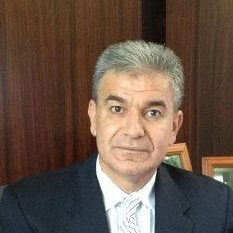Original post on Yemen Times.
On Saturday, December 1, a group of donors had gathered at the World Bank office in Sana’a to discuss the ways in which we could help Yemen implement the outcomes of the National Dialogue Conference (NDC). Our meeting included, in addition to the World Bank, representatives of the United Nations (UN), the Gulf Cooperation Council (GCC), the United States Agency for International Development (USAID), the Department for International Development (DFID), Germany, the Netherlands, Japan, among a host of other participants. It was the weekend, and the offices were empty barring those attending the meeting. Michael sat right in front of me as we discussed the steps we need to take going forward. We agreed on a plan to study other countries’ experience in managing transitions, both successful and unsuccessful, and to review Yemen’s own experience with reform over the last 10 years. We also decided to hire a team of top experts to draw up scenarios for how donors could best support government implementation of the outcomes of the NDC… And finally, we agreed to meet the following week… However, Michael’s life was cut short.
On the morning of December 5th, Michael Nebelung, the Yemen Country Director for Gesellschaft für Internationale Zusammenarbeit (GIZ), a German development organization, went to the hospital in Sana’a for a medical checkup. He was accompanied by a fellow GIZ staff member and their driver. While they were there, a group of terrorists attacked the hospital. The attackers went on a shooting spree killing everyone in their way; doctors, nurses, and patients alike. The carnage left 56 people dead and more than 200 injured. Michael was among the victims. He was killed in cold blood by those cowardly terrorists.
I first met Michael about a year ago when he came to my office with a long list of GIZ supported programs. We discussed these projects and explored the options for cooperation between the World Bank and GIZ. Later on, we became good friends. He was a smart man, knowledgeable, and dedicated to development. Michael spent almost all of his professional life helping others. His journey took him across the world, from Guatemala, through Kosovo, to Yemen. He was committed to helping the people of Yemen send their children to school, improve their health services, and provide clean water for their families. Like all of us, he sought to support Yemen during this historic period of national transition.
None of us who attended Saturday’s meeting are under the illusion that the task ahead is easy or risk free, but we all believe in the Yemeni people. We also understand that building Yemen’s future requires ongoing support from the international community. Those who killed Michael and the many other victims are seeking to halt this historic, peaceful political transition.
To them, we say: “You will not succeed!”
We will continue to walk in Michael’s path. We will continue his work. We will remain beside the Yemeni people as they seek to build their modern democratic state and we are determined to see through what Michael has started.


Join the Conversation